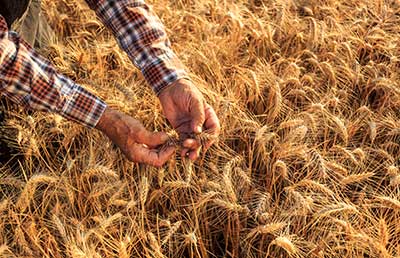Grain Contributions May Be Even More Valuable

Many farmers give a certain amount to their favorite charities each year. Under the old law, there was an advantage of giving grain to these charities instead of cash. The gift of grain did not create a charitable donation, however, it directly reduced their taxable income of the farm operation.
For example, assume Mary and Bill gave $10,000 of grain out of his Schedule F farm operation and he is under the wage base. They also do not itemize their deductions. The $10,000 of grain donated reduced their Schedule F income which resulted in saving $1,530 of self-employment (SE) tax and since they were in a 25% tax bracket, saved about $2,500 of income tax. They also lived in Iowa and saved about $700 of state income tax. On top of it, they were still entitled to their standard deduction of $12,700 (2017 numbers). By making a $10,000 grain gift, they saved about $4,700 of combined SE and income taxes.
Now, for 2018, Bill and Mary are even in better shape. They still get approximately the same amount of tax savings (their tax bracket will likely drop to 22%), however, in this case, their standard deduction will increase to $24,000 which will shelter about an extra $10,000 of income (although they won’t get any exemption deduction).
Also, some states allow Bill and Mary to contribute grain to a charity and then get a credit against their state income tax. This can almost be a double deduction. Bill and Mary would not get any charitable deduction for the grain, however, this grain gift effectively reduces their state income taxes by the value of the gift.
In our Bill and Mary example, some states (such as Iowa) would allow Bill and Mary to reduce their state income tax liability by up to the value of the grain gift which could be as high as $10,000.
As you can see, gifting grain can be very powerful and under the new tax law it can even make more sense.
Paul Neiffer is a certified public accountant and business advisor specializing in income taxation, accounting services, and succession planning for farmers and agribusiness processors. Paul is a principal with CliftonLarsonAllen in Walla Walla, Washington, as well as a regular speaker at national conferences and contributor at agweb.com. Raised on a farm in central Washington, he has been immersed in the ag industry his entire life, including the last 30 years professionally. Paul and his wife purchase an 180 acre ranch in 2016 and enjoy keeping it full of animals.

Comments are closed.